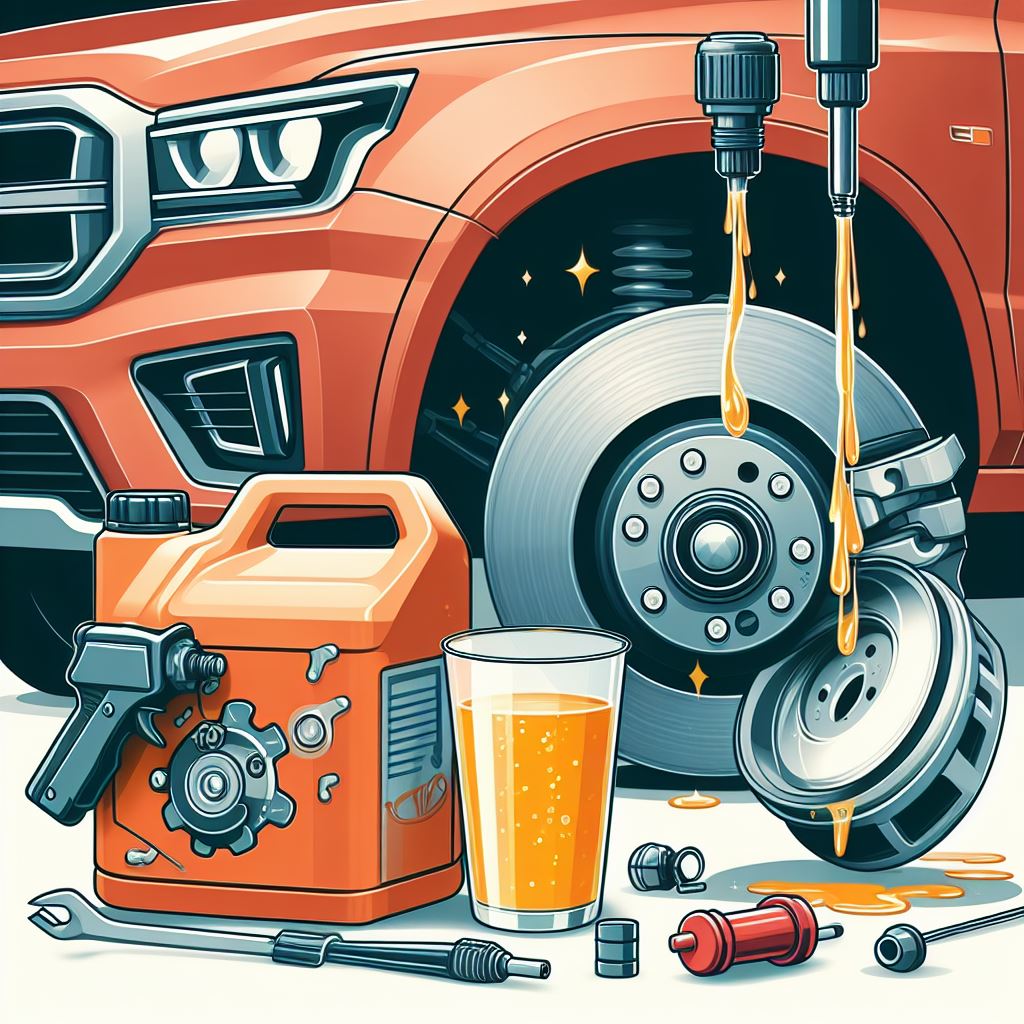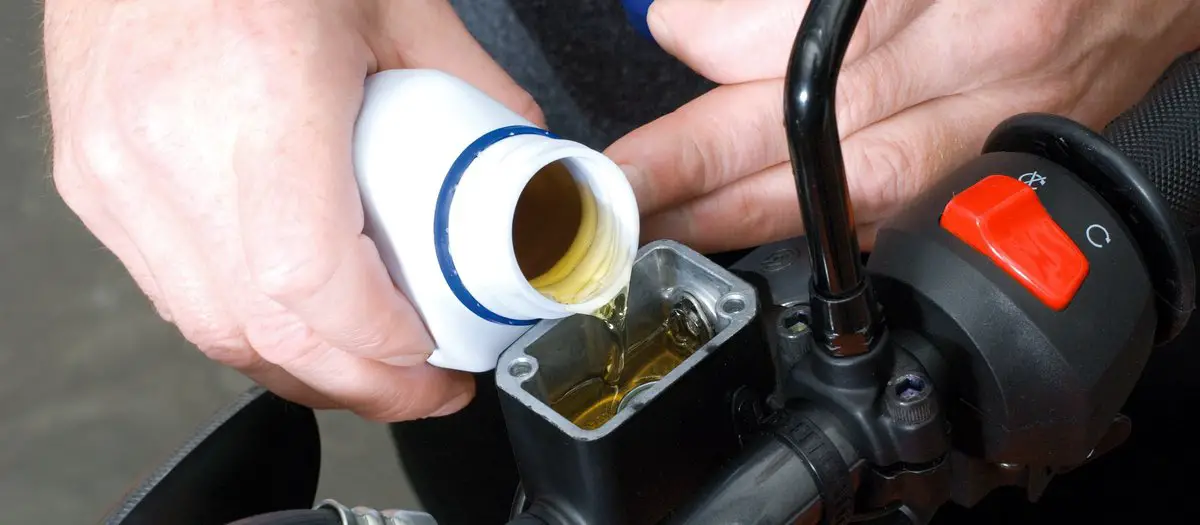When is a Brake Fluid Flush Necessary – Keep Brakes in Top Condition
As you drive, your car’s brake fluid absorbs moisture and dirt. Over time, this can cause your brake fluid to become less effective, leading to braking problems. A brake fluid flush removes old, contaminated brake fluid from your car’s system and replaces it with fresh, clean fluid. Here’s when you need one.
What is brake fluid, and what does it do?
Brake fluid is a crucial part of your car. It’s used in the braking system to convert kinetic energy into pressure, bringing the vehicle to a complete stop.
Brake fluid is a vital component of any car’s braking system. It plays an important role in ensuring that your car can stop quickly and safely.
Brake fluid is a hydraulic fluid, which means that it is used to transfer force from one point to another. When you press the brake pedal, brake fluid is forced through the hydraulic system, applying pressure to the brake pads.
This pressure creates friction, which slows down the car and eventually brings it to a stop. Over time, brake fluid can become contaminated with water or other fluids, which can reduce its effectiveness.
For this reason, it is important to regularly check your brake fluid level and ensure that it is clean and free of any contamination.
How often should I have my brakes flushed?
The best way to determine how often you should get your brakes flushed is by reviewing the manufacturer’s recommendations. The most common recommendation is every two years or 50,000 miles (whichever comes first).
This is because the brake fluid will begin to break down over time. If you don’t replace it regularly, the fluid can become contaminated with dirt and debris that could cause serious damage to your brakes.

Signs that show it is time to replace brake fluid?
If you haven’t replaced your brake fluid recently, there are several signs that it may be time to change it. These include:
- Your brake pedal feels spongy or mushy
- You notice a strange smell coming from your brake pedal
- Your brake lights aren’t working properly
- Your brake pads feel rough or worn
- When you apply your brakes, they make a loud squealing noise
- Your brake rotors look dull or pitted
- Your brake lines appear rusty
- Your brake shoes are loose
- Your brake drums are cracked
- Your brake hose is leaking
- Your brake fluid looks cloudy or dirty
- Your brake calipers are corroded
- Your brake fluid smells like gasoline
Why is it important to keep your brake fluid fresh?
Brake fluid is a critical component of your car’s braking system. It helps to transfer the force you apply to the brake pedal into pressure that stops the vehicle. Brake fluid also helps to keep your brakes cool by absorbing heat.
Over time, brake fluid can lose its effectiveness due to contamination. Contaminants can include water, dust, dirt, and other particles. These contaminants can cause corrosion and damage to your brake system. This can lead to decreased braking performance and even failure of the brake system.
To avoid these problems, it is important to keep your brake fluid fresh by performing a brake fluid flush every few years.
A brake fluid flush involves using fresh brake fluid and a special machine that flushes out the old fluid from your car’s braking system. This will help remove any contaminants and keep your brakes working properly.
What are the consequences of not flushing your brake fluid?
Not flushing your brake fluid has consequences that could be far-reaching and serious. For one, your brakes may not work as effectively, which could lead to an accident.
In addition, your brake fluid could become contaminated, which could cause damage to your brake system. Over time, not flushing your brake fluid could also lead to corrosion and other problems.
So while it may seem like a small thing, not flushing your brake fluid can have significant consequences. So be sure to flush your brake fluid regularly to avoid these potential problems.
FREQUENTLY ASKED QUESTIONS.
1. How much does a brake fluid flush cost?
A brake fluid flush costs about $100 for an average-sized sedan or coupe. However, this price varies depending on the type of vehicle you own.
Some cars require more work than others. Also, some models have different components that must be removed before the brake fluid can be drained.
2. Is it safe to flush my brake fluid myself?
Yes! Flushing your brake fluid yourself is perfectly safe. All you have to do is follow the instructions provided by your mechanic.
They’ll tell you what tools you need and how long it takes to complete the job. Once you’re done, you’ll want to check your brake fluid level. Make sure it’s up to full capacity before driving off.
3. Why are brake fluid flushes important?
Flushing your brake fluid keeps your brakes clean and healthy. Over time, brake fluid can contaminate debris such as road salt, sand, and other materials.
If left untreated, this can cause brake deterioration and eventually lead to brake failure. By keeping your brake fluid clean, you reduce the chance of having a problem.
4. What Happens During a Brake Fluid Flush?
During a brake fluid flush, your mechanic removes all of the brake fluid from your car’s brake system.
The process usually requires removing the wheel cylinders (the part where the brake fluid circulates), the master cylinder (where the brake pedal connects to the brake system), and the caliper (which holds the brake pads). After everything has been removed, the new brake fluid is installed. Then, the mechanic checks the brake fluid level to ensure it’s up to the proper amount.
Finally, they reinstall everything back into place. When finished, you should see a noticeable difference in your braking ability. You may also notice a slight odor coming from your brake system. This is normal and won’t affect your car’s operation.
5. What should I do so that brake fluid last longer?
You can extend the life of your brake fluid by following these tips:
Keep your brake fluid cool. Store your brake fluid in the trunk instead of the engine compartment. It’s best to store it in a plastic container with a lid.
Avoid storing brake fluid near heat sources like radiators and exhaust pipes. Heat causes brake fluid to break down faster.
Don’t use a brake fluid warmer. These devices keep your brake fluid warm, which extends its lifespan. But they aren’t necessary. Your car’s climate control system will keep your brake fluid at the right temperature.
CONCLUSION
It is important to know when you need a brake fluid flush and how to maintain your brakes properly. By following these simple tips, you can ensure that your brakes will last many years.

